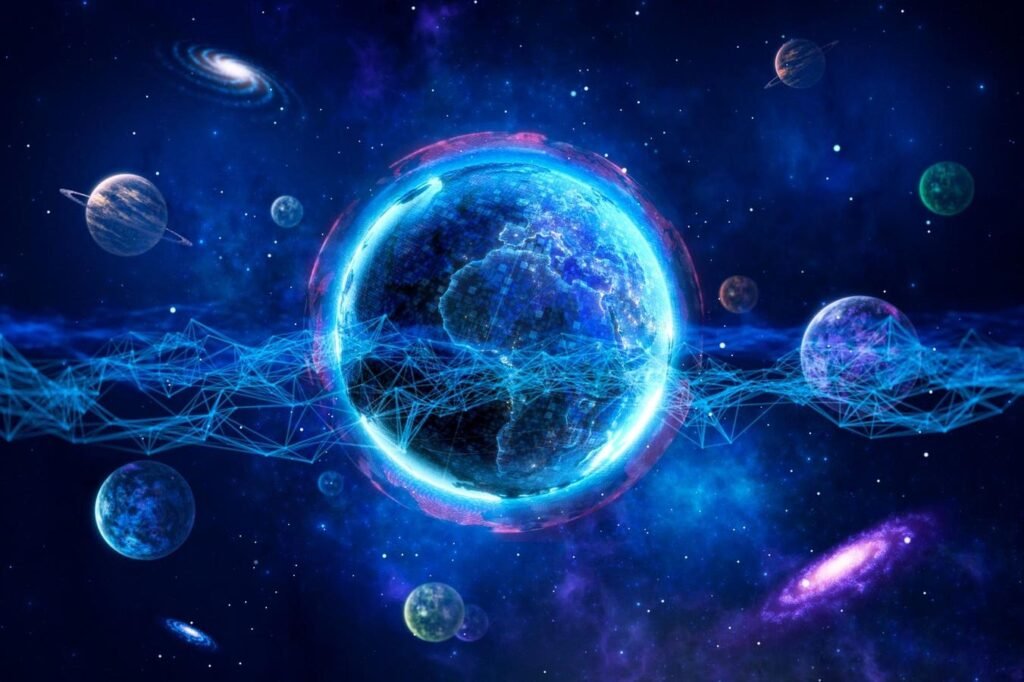Astronomy will get a major boost from two new AI research institutes funded by the NSF and the Simons Foundation.
Getty
The National Science Foundation and the Simons Foundation will jointly fund two new National Artificial Intelligence Institutes for astronomy sciences.
The two labs will each receive $20 million in funding over five years: $10 million from NSF and $10 million from the Simons Foundation. Both labs will be part of the NSF-led National Artificial Intelligence Laboratory program, which launched in 2020 and currently includes 27 AI labs across the country.
“The massive amounts of data that will be collected by the NSF-DOE Vera C. Rubin Observatory and other large-scale astronomy projects in the coming years are too vast and rich to be fully explored with existing methods,” NSF Director Sethuraman Panchanathan said in a news release. “Equipped with reliable, trustworthy AI in their toolbox, everyone from students to senior researchers will have exciting new ways to gain valuable insights that can lead to amazing discoveries that might otherwise be buried in the data.”
“Astronomy has incredibly rich, open datasets that are ripe for deeper and more in-depth exploration,” added Simons Foundation President David Spergel. “AI gives us new tools that can use this data to produce transformative results and develop tools that can impact other fields.”
The hope is that both institutes will improve AI capabilities overall and make it a more useful tool for researchers working with large datasets in other fields.
The new AI Institute for Astronomical Sciences is:
NSF-Simons AI Cosmic Origins Institute (NSF-Simons CosmicAI)
The University of Texas at Austin will lead the effort in partnership with NSF NOIRLab, the NSF National Radio Astronomy Observatory, the University of Utah, the University of Virginia, and UCLA.
At UT, the institute encompasses eight departments and more than 17 faculty members working in areas such as astronomy, computer science, statistics and data science, linguistics, information science, mathematics, mechanical engineering and aerospace engineering.
NSF-Simons CosmicAI aims to accelerate traditionally time-consuming aspects of astronomy research, such as “processing and analyzing large amounts of data, and creating and evaluating simulations of complex phenomena like chemical reactions inside stars.”
“This is an incredible opportunity to deepen our understanding and help answer some of the most fundamental questions about the universe. As part of our campus, NSF-Simons CosmicAI will advance AI-based discovery enabled by incredible talented people and the largest GPU cluster in academia, and through the Auden Institute, we will collaborate with eight of the best scientific disciplines in the country,” said UT President Jay Hartzell. “Because astronomy data is publicly available and not proprietary, CosmicAI aligns with our university’s mission to use open AI as an enabler of the public good. We are pleased to partner with NSF and the Simons Foundation to launch this institute.”
NSF-Simons Sky AI Laboratory (NSF-Simons SkAI)
The institute will be led by Northwestern University and will collaborate with the University of Chicago, the University of Illinois at Urbana-Champaign, the National Supercomputing Applications Center, Argonne National Laboratory, Fermi National Accelerator Laboratory, the University of Illinois at Chicago, Adler Observatory, the University of Wisconsin-Madison, as well as several undergraduate education and research institutions, industry and arts organizations.
The team brings together researchers from multiple disciplines to develop new AI tools that enable powerful analysis of large astronomy datasets and more robust physics-based simulations.
“We are thrilled to have the opportunity to collaborate with our incredible interdisciplinary, multi-institution team to accelerate the data-driven revolution that wide-field and deep space surveys are bringing to the field of astronomy,” said Northwestern University astrophysicist Vicky Kalogera, principal investigator on the grant. “We will transform our understanding of astrophysics across an incredibly wide range of scales: from stars and the transient phenomena they produce, to the evolving galaxies they inhabit, to the black holes they form, to the dark regions of the universe and their cosmological origins.”
The two institutes will also train young researchers and students and carry out various outreach activities to disseminate their discoveries and technologies, including summer schools for high school students and teachers, as well as the development of online courses that will allow scientists and students to earn certification in the field of AI-assisted astronomy.

